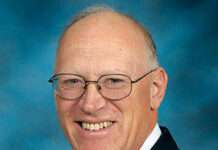Online series kicks off April 22 to help you spend money more wisely
MANHATTAN, Kan. – In 2019, nearly a year before the COVID-19 pandemic hit, the U.S. Federal Reserve estimated that about 4 in 10 American adults could not cover a $400 unexpected expense.
The pandemic, then, heightened those struggles for many.
Three financial management experts and agents with K-State Research and Extension said recently that the best way to weather tough times is to plan for them in better times.
“It’s not a matter of ‘if’ you’re going to need emergency money,” said Cindy Williams an extension agent in the Meadowlark District. “It’s ‘when’ you are going to need it.”
Williams noted that when people aren’t saving money for future uses, they often have to find other means to pay for unexpected bills, sometimes turning to high interest loans. “We hope they’re not doing that,” she said.
Williams and several of her colleagues will be offering the online program, Wallet Wisdom, a six week series that launches on April 22. The program is free, but registration is required so that participants can receive information on how to access the program.
Each Thursday session will be held from 12 noon to 1 p.m., but will also be recorded for participants to watch at other times. Registration is available online.
Monica Thayer, a K-State Research and Extension agent in the River Valley District, said the April 22 session is titled, A Financial Checkup.
“When we talk about health, a lot of times we are talking about your (physical) well-being, but your financial health is just as important,” Thayer said. “This financial checkup helps identify problems and chart progress, then outlines some steps to achieve your financial goals.”
Gary Fike, director of the Riley County extension office, added that money is emotional to many. The April 29 session will address ‘Emotions and Money.’
“People are emotionally tied to money and it may be because of the way they were brought up, such as their own family financial situation as kids,” he said. “Maybe their parents placed restrictions because the family didn’t have enough money, or those families either spent it or borrowed it to live life as they wanted to live it.
“We are all to some extent tied emotionally to money, the spending of and saving of, how we spend it and what we do with it.”
Williams cited a statistic that indicates 70% of all marriages have issues related to money.
Other topics in the series include Spending Plans (May 6), Increasing Savings (May 13), Debt Management (May 20) and All About Credit (May 27).
Spending plans is a fancy term for a budget, Thayer said. “You say ‘budget’ and people think you have to tighten down and you can’t spend money. But if you say ‘spending plan,’ then people think, ‘oh I get to spend money.’ We use the term spending plan to indicate that you get to tell your money where it goes rather than coming up short at the end of the month.”
More information on sessions planned in the Wallet Wisdom series is available online.
FOR PRINT PUBLICATIONS: Links used in this story
Wallet Wisdom registration, Bit.ly/walletwisdom2021
K State Research and Extension is a short name for the Kansas State University Agricultural Experiment Station and Cooperative Extension Service, a program designed to generate and distribute useful knowledge for the well being of Kansans. Supported by county, state, federal and private funds, the program has county extension offices, experiment fields, area extension offices and regional research centers statewide. Its headquarters is on the K State campus in Manhattan. For more information, visit www.ksre.ksu.edu. K-State Research and Extension is an equal opportunity provider and employer.
Story by:
Pat Melgares
785-532-1160
[email protected]
For more information:
Cindy Williams
[email protected]
Monica Thayer
[email protected]
Gary Fike
[email protected]





